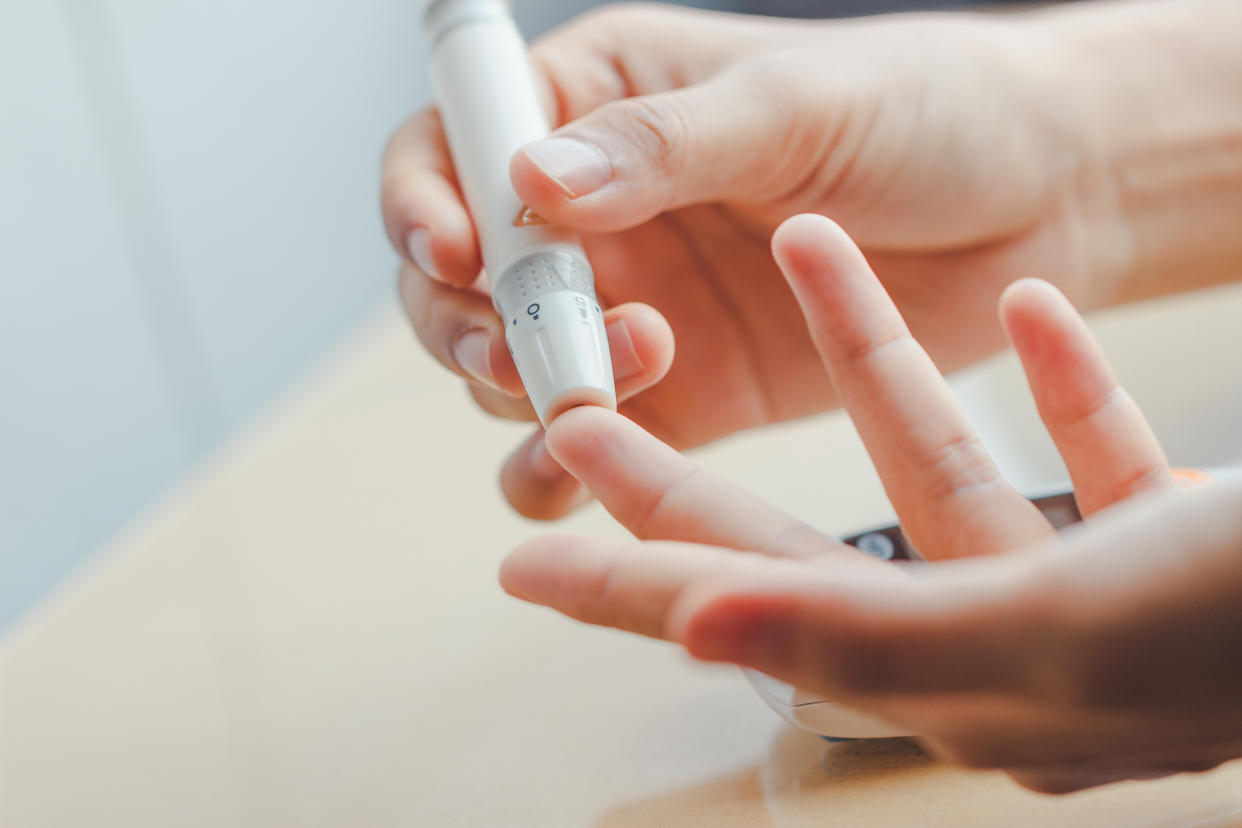Brain injection rids rats of type 2 diabetes for up to several months, study suggests

Rats with type 2 diabetes experienced a short-lived remission following a single injection into their brain, research suggests.
Scientists from the University of Washington found that rodents with the condition went on to have healthy blood sugar levels after the administration of a protein.
A complex brain analysis later revealed the rats started off with limited numbers of “nets” that are known to promote brain circuit stability among groups of nerve cells involved in blood sugar control.
Read more: Coronavirus linked to onset of type 1 diabetes in children
The team discovered the loss of these nets was rapidly reversed following a single injection of the protein into a rat’s brain.
For several weeks or even months, the rodents’ brain sugar levels were normal.
While only animal studies have been carried out so far, the scientists hope their results “may one day inform therapeutic strategies for inducing sustained diabetes remission” in human patients.

‘May inform strategies for sustained remission’
“Until recently, the brain's ability to normalise elevated blood sugar levels in diabetic animals was unrecognised,” said study author Dr Michael Schwartz.
“By interrogating cellular and molecular responses induced in the hypothalamus by a brain peptide called fibroblast growth factor 1, our international teams’ latest findings chart a path towards a more complete understanding how this effect is achieved.”
The hypothalamus is a small region of the brain that regulates many body functions, including blood sugar levels, hunger, food intake and energy use.
“These insights may one day inform therapeutic strategies for inducing sustained diabetes remission, rather than simply lowering blood sugar levels on a day-to-day basis as current treatments do,” said Dr Schwartz.
Read more: Sign of adulthood type 2 diabetes visible in eight-year-olds
In the UK alone, 3.9 million people have been diagnosed with diabetes. Around nine in 10 (90%) have type 2, which is often linked to being overweight or inactive.
In 2018, 34.2 million Americans – 10.5% of the population – had diabetes.
Type 2 diabetes comes about when a patient’s pancreas does not work properly or cannot produce enough of the blood-sugar-lowering hormone insulin.
Most people with type 2 diabetes require medication, which helps to keep blood sugar levels as normal as possible.
Unless properly controlled, diabetes can have serious complications, causing everything from blindness and limb amputations to erectile dysfunction and heart attacks.
Many patients require differing medicines and doses as their disease progresses.
To help combat this, the Washington scientists looked at so-called perineuronal nets in rats. These promote brain circuit stability by encasing nerve cells and securing the connections between them.
The team discovered the protein fibroblast growth factor 1 repaired the nets that were damaged by diabetes, which is thought to be required for sustainable remission.
Read more: Brush teeth three times a day to ward off diabetes
After looking at rats with type 2 diabetes, the scientists found these nets were scarce in the rodents’ hypothalamus compared to animals with normal blood sugar levels. In other parts of the brain, however, the nets were normal.
Perhaps most importantly, the loss of perineuronal nets was rapidly reversed following a single injection of fibroblast growth factor 1.
The results – published in the journal Nature – therefore suggest perineuronal nets could be a key target for sustained diabetes remission, according to the scientists.
They plan to investigate exactly how fibroblast growth factor 1 may normalise blood sugar levels.



